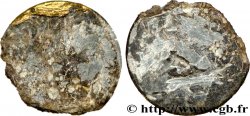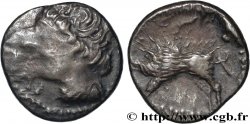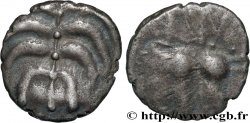v23_0889 - HELVETI (Current Switzerland) Statère de Philippe II, imitation celtique, type de Soy, classe I
MONNAIES 23 (2004)
Начальная цена : 2 200.00 €
Назначить цену : 4 500.00 €
Цена реализации : 2 400.00 €
Количество ставок : 2
Максимальная предлагаемая цена : 3 370.00 €
Начальная цена : 2 200.00 €
Назначить цену : 4 500.00 €
Цена реализации : 2 400.00 €
Количество ставок : 2
Максимальная предлагаемая цена : 3 370.00 €
Тип Statère de Philippe II, imitation celtique, type de Soy, classe I
Дата: IIIe-IIe siècles avant J.-C.
Металл: gold
Диаметр: 18,5 mm
Ориентация осей монеты: 10 h.
Вес: 8,38 g.
Редкость: R2
Комментарии о состоянии
Exemplaire sur un flan large. Beau portrait. Faiblesse de frappe au revers. Infimes petites marques sur le visage ?
Ссылки в каталоге: :
Происхождение:
Cet exemplaire provient de MONNAIES XV, 30 septembre 2002, n° 1369
Лицевая сторона
Аверс: легенда: ANÉPIGRAPHE.
Аверс: описание: Tête laurée à droite, imitant la tête d’Apollon.
Обратная сторона
Реверс: Описание: Bige galopant à droite, les chevaux bondissant, avec un canthare sous les pattes avant ; l'aurige au-dessus de la roue du char, tient un fouet ; ligne d'exergue et la légende au-dessous.
Реверс: легенда: fILIPP.U
Комментарий
Flan légèrement concave au revers et bombé au droit. Exemplaire portant un coup superficiel de pioche ou de piolet au revers, au-dessus du cheval sur le kentron de l’aurige. L’exemplaire est encore lourd (8,39 g) pour un poids théorique de 8,60 g et le style relativement grec bien que nous puissions déceler un début de stylisation dans le traitement de la tête d’Apollon et au revers dans la représentation du bige.







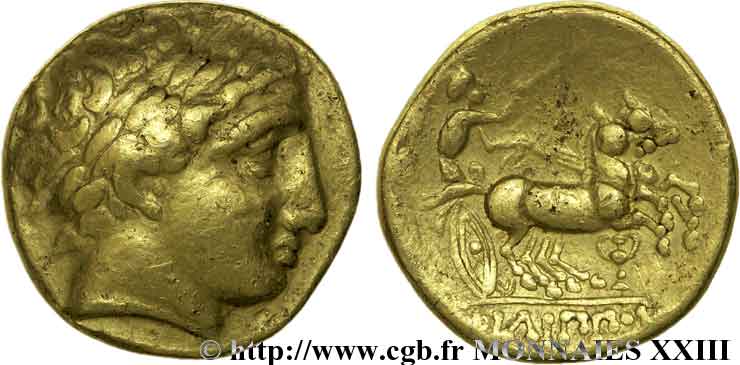
 Cообщить об ошибке
Cообщить об ошибке Распечатать страницу
Распечатать страницу Отправить мой выбор
Отправить мой выбор Задать вопрос
Задать вопрос Consign / sell
Consign / sell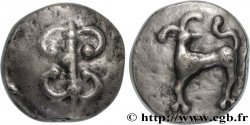
 Информация
Информация